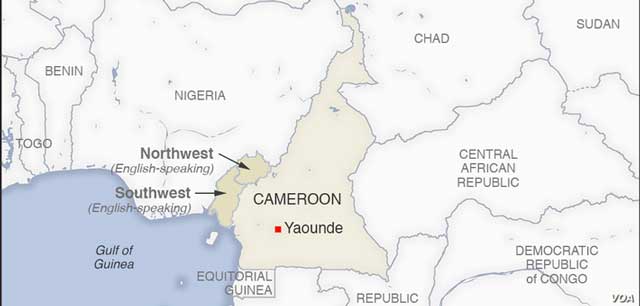
Yaoundé, Cameroon | AFP | Cameroon became independent in 1960, the first of 17 African countries to break free from their European colonial masters that year.
Here are key dates in the country since then.
– 1960: independence –
Cameroon was a German protectorate and was split between Britain and France after World War I.
The French-administered territory became independent on January 1, 1960. The British section followed in 1961, part of it merging that year with French Cameroon in a federation.
In 1972 the federal arrangement was dropped in favour of a single United Republic of Cameroon.
– 1982: Biya takes power –
The first post-independence president, Ahmadou Ahidjo, resigned in November 1982 and was replaced by his prime minister, Paul Biya.
Biya has won all presidential elections since then.
In August 1983 Biya accused Ahidjo of masterminding a plot against him. He was sentenced in absentia to death, commuted to life in prison, and died in exile in November 1989.
In April 1984 palace guard soldiers originating from Cameroon’s north attempted a coup, sparking days of fighting with those from the south, from where Biya hails. Around 70 people were killed.
– Demonstrations –
Between April and June 1991 opposition antigovernment demonstrations ended in clashes in several regions.
Cameroon’s first multiparty presidential elections in October 1992 were won by Biya. The runner-up, John Fru Ndi from the Social Democratic Front (SDF), disputed the result.
In February 2008 crowds demonstrated against the rising cost of living and plans to remove presidential term limits from the constitution.
Forty people were killed in clashes between security forces and demonstrators, according to authorities, but NGOs put the toll at 130.
– 2014: Boko Haram attacks –
In May 2014 the army began to deploy significant reinforcements to the Far North region where Boko Haram jihadists from Nigeria were intensifying their attacks.
In February 2015 hundreds of jihadists launched a counterattack in the region’s town of Fotokol, killing at least 100 people.
There have been 13,000 jihadist attacks in the region since 2014, claiming several thousand lives and leading tens of thousands to flee, according to authorities.
– 2016: Anglophone anger –
Long-simmering dissatisfaction in Cameroon’s historically English-speaking regions flared in November 2016.
Demonstrating teachers and lawyers alleged discrimination in the system and the economy, and calls mounted for more autonomy.
Authorities cracked down on protests the following month, claiming the first civilian lives.
In October 2017 separatist leaders issued a symbolic declaration of independence, leading to more clashes in which at least 17 people were killed.
Radical separatists took up arms in late 2017, attacking security forces and government institutions.
The unrest gathered speed in 2018, claiming more than 3,000 lives over two years, according to rights groups.
– 2018: seventh term for Biya –
In October 2018 Biya was elected for a seventh term but opposition candidate Maurice Kamto disputed the result and declared himself the winner.
After weeks of peaceful protests, he was arrested with several supporters in January 2019. He was held for more than eight months.
In August 2019 jailed anglophone separatist leader Julius Ayuk Tabe was sentenced to life in prison.
Legislative and municipal elections were called for February 9 but Kamto said his Movement for the Rebirth of Cameroon would not participate.
 The Independent Uganda: You get the Truth we Pay the Price
The Independent Uganda: You get the Truth we Pay the Price




It’s so sad